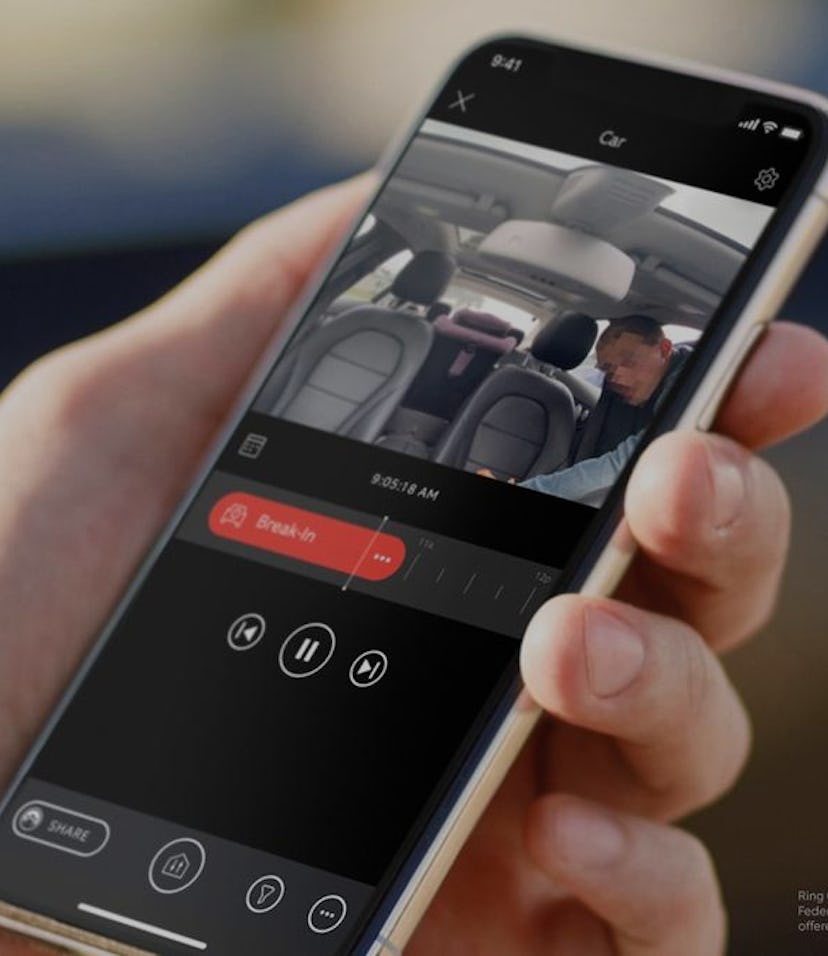Culture
Ring's spy tech for your home, car, and mailbox encourages paranoia, not safety
By playing up people's anxieties, Amazon is offering police state versions of surveillance in the form of a "solution."

The concept of whole-home security has rapidly mutated into something far more paranoid thanks to the likes of Amazon's Ring. On Thursday, the company announced a range of new devices designed with "privacy in mind" — but the Ring Always Home Cam, Car Connect, and even its mailbox sensor seem to encourage anxiety rather than reassurance.
Through marketing and branding his technology as security tools, Jeff Bezos has essentially coaxed consumers into trading their privacy for a flimsy notion of safety. It's one of the darker examples of tech solutionism, which offers police state versions of surveillance in the guise of home security. It's dystopic, discouraging, and above all, you don't really need any one of these devices (looking at you, indoor spy drone).
Sensors everywhere — Among its new paranoia-inducing security systems, Ring is introducing a car-oriented trio that works together to send you alerts about detected incidents involving your vehicle: the $59.99 Ring Car Alarm, $199.99 Ring Car Cam, and $199.99 Ring Car Connect. The car cam is activated when your vehicle is parked, and senses for things like bumps and break-ins.
The company also introduced a $29.99 mailbox sensor that will activate every single time you receive mail or your mailbox is opened. Every. Single. Time.
The Always Home Cam, meanwhile, is a $249 indoor drone that reaches "predetermined" points in your house and will debut in 2021. The idea is to keep an eye on your domain. Not once does the company discuss privacy concerns or even the fact that its regular Ring cameras were easily hacked by bad actors, leading to terror among families in the United States.
There is a fundamental difference in being informed about your home and being paranoid about the same thing. These devices operate on the premise that there is always some form or element of danger that you should keep a feverish eye on. But there is little to no research that indicates smart home security devices lower crime. In fact, Ring itself has declined to cooperate with MIT Technology Review about the very same subject.
Wanting security for your home and neighborhood is not a malicious aspiration. But with devices from Ring, you are effectively handing over your personal information and data to a company that has yet to adequately address its civilian privacy issues alongside its revolving door collaborations with law enforcement authorities.
Amazon also conveniently brushes aside reports of Ring passwords being leaked on the dark web or the fact that Ring's security issues were so profound and upsetting that it was hit with a federal lawsuit last year. An autonomous drone inside your house with unaddressed privacy concerns is the antithesis of security.
A much more pragmatic and arguably socially healthy approach would be to gain familiarity and cooperation with your neighbors, seek in-person and prudential solutions to local problems, and ideally ditch the camera, sensor, and alarm that keeps you on your toes constantly.
Home and neighborhood security don't have to be a debilitating, paranoia-laden, and mentally jarring undertaking. There are strategies beyond your typical police state environment of constant surveillance, constant anxiety.